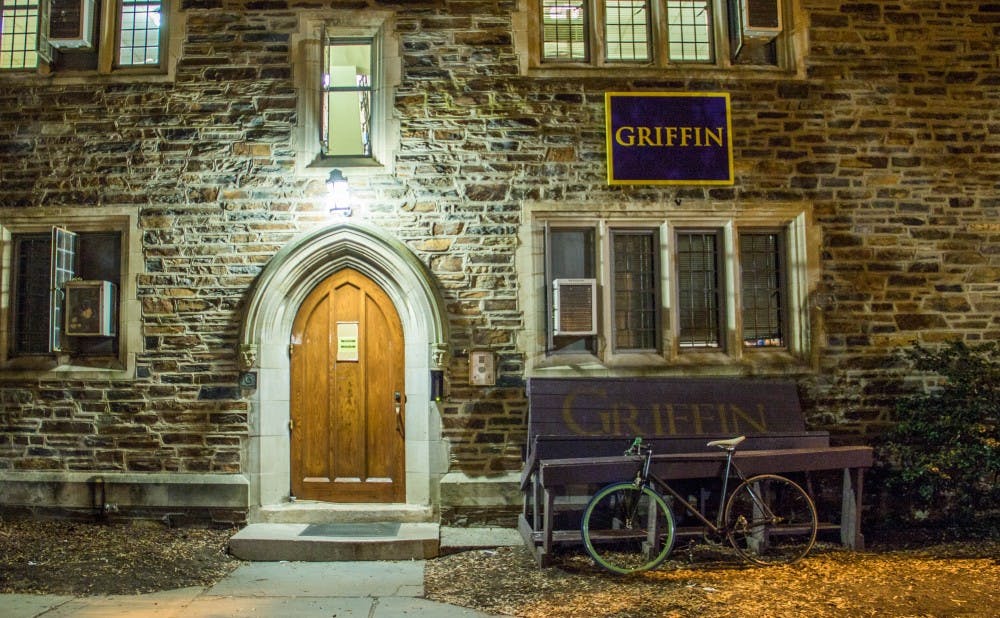The controversial Peer Advocacy for Sexual Health Center is slated to open to the student body in October.
Duke Student Government Senate voted to fund the PASH Center last April in a push led by junior Riyanka Ganguly—vice president for equity and outreach—and Executive Vice President Ilana Weisman, a senior. The center will provide peer counseling as well as sexual health and pleasure products to students.
Funding toward sexual pleasure products drew initial criticism from members of the student body and heavy debate within DSG. The meeting after the PASH budget was passed, a second bill reduced funding for sexual pleasure products. That bill was eventually struck down by the DSG Judiciary, restoring the initial funding.
Since then, progress toward opening the center has since gone smoothly, its organizers said.
“When there was misconstrued information from toxic forms of social media, I think that’s why there was a lot of student frenzy and pushback from not understanding the point and message behind [the PASH Center],” Ganguly said.
The PASH Center will temporarily open at Griffin House on West Campus until construction is completed on the Student Health and Wellness Center, expected to be finished in January 2017.
It is looking to differentiate itself from other resources on campus by operating “after hours,” Ganguly said, to be more convenient for students. This does depend on student schedules, however, as staffers would be volunteers.
“But I would love for it to be from 4:00 p.m. to 9:00 p.m. or 10:00 p.m,” she said.
Ganguly and Weisman will staff the center with the help of 15 peer educators trained through the house course “Condoms and Counseling,” which they taught last Spring and plan to offer again this Fall. Information taught in the course includes anatomy, reproduction, sexually-transmitted infections, gender and domestic violence, Title IX, stigma and counseling services.
“[The peer educators] are trained to provide a confidential and helpful resource that explains things to students and tells them their options out loud,” Weisman said. “It’s something that gathers all the information we have about campus or about Durham.”
Students will be allocated a to-be-determined monetary credit per semester, likely between $3.00 and $4.50 from the center, Ganguly said. Prices have not been set, but she noted that at Stanford’s Sexual Health Peer Resource Center condoms are worth ten cents.
Weisman is overseeing the center’s budget this year and is presently in contact with vendors to organize the product-oriented component of the center. She noted that other aspects such as branding, marketing and re-training educators must be completed prior to the October opening.
“My idea of success for this first year is being able to help at least a handful of students with whatever problems or whatever questions they might have, even if we’re not able to sell products yet,” Weisman said. “We hope we can fulfill the purpose of creating a couple healthy relationships, a couple of happier individuals.”
To address the concern that students may be hesitant to talk to other students about sexual and reproductive health, the PASH Center staff have discussed how to make the students comfortable. The center will be anonymous and confidential, and names will not be taken down during counseling or product purchase. Instead, students’ unique ID numbers will be used to track credit balance.
“We don’t want to see your name,” Ganguly said. “We don’t want to be able to look you up on Facebook or Instagram. We don’t want to know who you are, we just want to help you find resources.”
Weisman noted that PASH provides an additional resource for students who may be hesitant to talk to clinical professors, by providing a peer-to-peer approach.
“There is research to prove that peer-peer counseling is pretty effective and provides an open space for students to discuss feelings,” she said. “You might not want to talk to your friends or your peers, but at the same time, if you can’t talk to someone who is able to understand the context of the situation you’re living in, you might not want to go to someone with clinical expertise.”
Get The Chronicle straight to your inbox
Sign up for our weekly newsletter. Cancel at any time.

